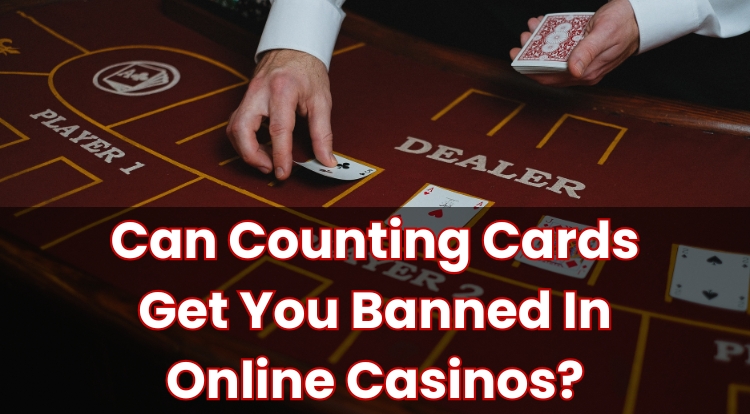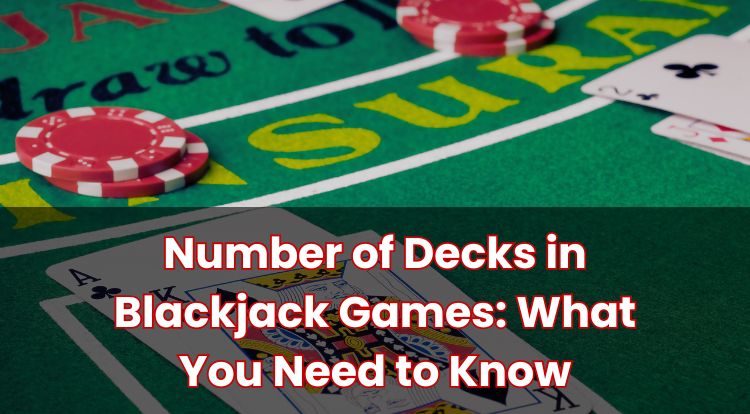How Do Casinos Catch Card Counters? Casino Security Explained
When it comes to card games in casinos, there is much more going on than shuffling decks and dealing hands. For some, the idea of card counting might sound like something from a film, but in reality, casinos take it very seriously.
If you have ever wondered how casinos spot players trying to get an edge, or what steps they take to keep games fair, you are in the right place. From staff training to high-tech surveillance, the set-up is designed to meet standards set by the UK Gambling Commission (UKGC).
Let’s take a closer look at how casinos keep things in check and what really goes on behind the scenes.
What Really Happens If You’re Caught Counting Cards?
If you are spotted counting cards in a UK casino, the response is usually controlled and practical. Card counting is not illegal. It is simply using observation and maths at the table. That said, casinos rarely allow it, as it can tilt the advantage away from the house.
What happens next varies. You might be asked to play a different game, to keep your bets flat, or to take a break from the table. Supervisors can also change how the game runs, for example by shuffling earlier or using a continuous shuffling machine. If the behaviour continues, you may be asked to leave. In some cases, a venue will issue a ban, and your details might be shared within the same casino group.
Online, similar principles apply but the tools are different. Accounts can be limited or closed if play breaches site terms.
If you decide to give casino games a go, remember to do so responsibly and within your means; never wager more than you can afford to lose.
The Role of Pit Bosses and Dealers in Identifying Card Counters
Pit bosses and dealers are on the front line of game protection. Pit bosses oversee several tables and look for patterns across time, not just one or two hands. A player whose bet sizes rise and fall in step with the flow of the shoe, or who avoids certain situations consistently, may draw attention.
Dealers are closest to the action. They see who is tracking the discard tray, who freezes when new cards arrive, and who changes behaviour when the count would be favourable. They are trained to spot clusters of small signals rather than rely on a single giveaway.
When something looks off, the dealer quietly alerts the pit boss. The supervisor may watch more closely, ask for notes on the play, adjust procedures such as shuffle frequency, or call in surveillance for a longer review. If concerns persist, managers decide whether to speak with the player, limit betting options, or end play at that table.
Do Casinos Use Facial Recognition to Track Players?
Facial recognition is increasingly used in larger UK venues. Cameras capture images as guests move around, then compare them with an internal database to identify those who are barred or linked to known security issues. It helps staff spot problems early without disrupting regular play.
Not every casino uses facial recognition. Many rely on standard CCTV supported by trained staff. Where it is used, personal data must be handled under data protection law and gambling licence conditions. If you are asked for identification at the door, that is usually for age verification, self-exclusion checks, and anti-money laundering requirements.
Online casinos do not use facial recognition, but they do verify identities and monitor activity through account systems and payment checks.
What Behaviour Makes Players Look Suspicious?
Casinos do not jump to conclusions based on a single moment. It is the pattern of decisions and behaviour over time that prompts a closer look.
Common Signs Casino Staff Look For
Staff pay attention to how players carry themselves. Someone who repeatedly stares at the discard tray, times their decisions to the deal, or avoids conversation when key cards appear may stand out. Frequent seat changes, moving tables in a set rhythm, or cutting sessions short at particular points can also raise questions.
None of these actions prove anything on their own. It is when several of them show up together, and keep showing up, that a player is likely to be observed more closely.
How Betting Patterns Give Players Away
Betting tells a longer story than body language. A player who keeps wagers small during unfavourable stretches and then steps up precisely when the remaining cards would be more advantageous will be noticed. Surveillance teams and pit bosses track these patterns over dozens of hands, not just one or two.
To support this, some venues use software to log chips and decisions, while supervisors keep hand-written notes. Over time, a consistent bet spread that aligns with the state of the shoe can be enough for the casino to intervene.
Legal vs. Illegal: What the Law Says About Card Counting
In the UK, using your memory and maths to follow the flow of cards is legal. It is not a criminal offence to observe what is dealt and make decisions accordingly.
Casinos, however, set the terms for taking part. They can refuse service, ask someone to stop playing a particular game, limit bet sizes, or ask a person to leave. If asked to leave and someone refuses, that becomes a trespass issue rather than a criminal gambling matter. Groups of venues may also share internal barring information.
What is illegal is using outside help or hidden devices to manipulate or track the game. Under the Gambling Act 2005, cheating covers tools or methods that interfere with how the game is meant to operate. That kind of conduct can lead to criminal charges.
Can Online Casinos Detect Card Counting?
Online casinos monitor every hand automatically. In most virtual blackjack games, Random Number Generators (RNGs) reshuffle the deck after each hand, which removes the long runs that card counters depend on. This design makes traditional counting approaches ineffective.
Live dealer blackjack is closer to a casino floor, but the set-up still limits counting. Shoes are large, shuffles happen frequently, and staff and systems watch for unusual play. Sites use analytics to flag accounts where bet sizes, timing, and decisions follow patterns associated with advantage play. If that happens, limits may be applied, bonus access can be removed, or the account may be closed in line with the site’s terms.
Game rules and procedures vary by site, so it might be helpful to read the table rules and conditions before you sit down. Between trained staff, surveillance, data tools, and clear policies, casinos work to keep their edge predictable and the games running as intended.
**The information provided in this blog is intended for educational purposes and should not be construed as betting advice or a guarantee of success. Always gamble responsibly.
*All values (Bet Levels, Maximum Wins etc.) mentioned in relation to these games are subject to change at any time. Game features mentioned may not be available in some jurisdictions.





